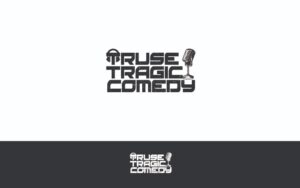
Updated
November 24, 2019 08:51:49
Related Story:
‘Walking time bomb’: K-pop world rocked by sex scandals linked to Big Bang’s Seungri
Related Story:
Lizzo, Billie Eilish dominate Grammy nominations in ‘incredible year for music’
If you want to understand the way Korean pop music has expanded beyond the country’s borders in the past few years, one place to start would be a segment on a Channel Nine countdown show.
Earlier this year, the network apologised for a segment on its show 20 to One about BTS, the K-pop group who are currently one of the most popular musical acts on the planet.
The apology followed a storm of criticism from by BTS fans in Australia, who considered the segment clueless and xenophobic.
Australia’s BTS Twitter account responds to Channel Nine
Since K-pop went international, particularly in the past decade, there has been subtle criticism in Western media that it is inauthentic, manufactured, or otherwise of lesser value than other kinds of pop music.
This week, BTS received no Grammy nominations, despite their 2019 EP Map of the Soul: Persona going number one in the US, UK and Australia.
“People will say, ‘Oh, it’s all fake’,” says Joanna Elfving-Hwang, an associate professor of Korean studies at the University of Western Australia who has studied K-pop and the way it intersects with Korean culture.
“But so is a lot of pop culture. It just depends on how we define authenticity.”
Hollywood studios manufactured the careers of actors for decades. The biggest songs in US pop music are routinely the result of a factory-like process involving a half-dozen songwriters and producers.
“I think K-pop has been an interesting illustration of the Western solipsism with itself — we always want to see Western popular culture as a source for everything,” she said.
As K-Pop grows, Australians are jumping on board
Earlier this month, a handful of Australians spent a few days in Seoul writing K-pop songs and pitching them to executives from record labels.
The songwriting camp, one of many that music rights organisation APRA-AMCOS hosts around the world, was curated by Tushar Apte, who at 33 is one of Australia’s most successful songwriters.
Like Sarah Aarons (who has written for Zedd, Jonas Brothers and others), Joel Little (Lorde) and Alex Hope (Troye Sivan), Apte is a songwriter-for-hire. You don’t know his name, but you’ve heard his work.
From his base in LA he has co-written songs for Chris Brown and Maroon 5’s Adam Levine. He worked on Demi Lovato’s heartbreaking hit Sober as well as No Candle No Light, the collaboration between Nicki Minaj and One Direction’s Zayn Malik.
Apte also has a writing credit on Map of the Soul: Persona, and it’s that experience that allowed Apte to guide the camp’s other participants in the subtle art of Korean pop music.
“Melodies change a lot quicker in K-pop than they do in American or Australian or Western pop in general,” Apte says, noting one of the general rules for writing in the genre.
Another one: “Find a concept that even Koreans who have minimal English knowledge can pick up.”
The lyrics become less of a focus, Apte says. After the song is written it will be translated into Korean.
Often, the phrases that remain in English are the simple, thematically important ones — “I do my thang, I love myself”, in BTS’s track IDOL, for example — that give a frame of reference to the whole song.
When a songwriter gets hired, the brief is often just that: brief. It might include a few reference songs — some Western, some Korean — and then a few key words to describe the desired mood.
“A lot of the time you will get ‘quirky’, ‘fun’, ‘bubbly’, ‘sassy’,” says Sydney musician Muki, who also attended the camp in Seoul.
As she and Apte say, given the lyrics will be translated, and the genre is so globalised, the mood and the melody are what’s important.
Fan groups back their ‘idols’
One of the most distinguishing aspects of K-pop is its fandom.
K-pop groups are often created by entertainment firms through a rigorous selection process. To make the cut, a teenager must undergo a training process that involves voice, dance and foreign language coaching.
Band members therefore become “idols” for fans because they embody a kind of self-fulfilment and success through hard work that, in an increasingly secular society, is appealing to many young Koreans.
Groups like BTS express their love for their Army in the lyrics of their songs. Fans, through social media, “feel like they know their idol intimately” because group members have heavy social media presences, Dr Elfving-Hwang says.
Fan networks, organised via local chapters around the world, take that devotion offline, creating communities IRL that “perform an increasingly important role as a source of social belonging”.
“[The genre] has created these mini cultures or organisations that are very personal or meaningful to a lot of people,” she says.
You can see this symbiotic relationship in fan chants.
These are a kind of call-and-response between performer and audience at live shows. (In YouTube comments, people talk about having to learn Korean so they can join in the chants.)
“I speak to the representatives quarterly,” says Andy Trieu, SBS PopAsia host and producer, about the BTS Army chapters in Australia.
“When it’s one of the [band] members’ birthdays, there are usually events that go on around Australia, in each major city.”
But that fandom can have a negative side.
The suicides of two K-pop idols in the past few years have sparked debate in South Korea about the cut-throat nature of the industry, which is controlled by powerful entertainment firms who pluck teenagers from obscurity and promise big success.
As the ABC reported recently, the contracts these firms use can be demanding and highly restrictive — and deliver very little in the way of payment during years of intensive training.
Musically complex, K-pop has ‘no boundaries’
If pop music is sometimes derided as path-of-least-resistance stuff — keep it simple to appeal to as many people as possible — K-pop is an exception.
Take a BTS track like Mic Drop.
Mic Drop by BTS live on SNL
Sometimes it feels like a dance hit, other times like something produced out of the Atlanta trap scene. The tempo jumps around. One drum fill leads to a breakdown, which leads to a build-up, and the whole thing starts again.
“There’s no genre limits per song — you can never be too happy, you can never be too sad, you can never be too aggressive,” says Tim Tan, an Australian musician whose first K-pop track as a co-writer was released this month.
If you think about Western music, Tan says, you might have artists working in different genres — R&B, hip hop, country, rock — who all release music that we might broadly label “pop” because it’s popular.
“[K-pop artists] can merge them simultaneously in one track,” Tan says.
“It would be really hard to try and describe K-pop as a genre using musical terms because there are no boundaries.”

Photo:
Australian musician Tim Tan. (Supplied: APRA-AMCOS)
In K-pop, each member of a group might have a distinct identity, similar to the way the Spice Girls were Sporty, Ginger, Scary, Posh and Baby.
This can make things complicated for songwriters.
“Often when you are writing back home in Sydney, you are just writing for one artist or a duo,” Muki says.
“In K-pop, you are writing for sometimes 12 different personalities.”
A ‘rich culture’ of music takes on political power
The popularity of Korean language has grown at UWA, with students picking up words and phrases from K-pop and wanting to learn more. This musical culture is now a form of soft power.
“K-pop has been one of the most successful and important cultural diplomacy tools for Korea,” Dr Elfving-Hwang says.
In the 1990s, the industry was largely aimed at the domestic audience. Today, it is an official branding tool for South Korea. The Ministry of Culture has a dedicated team focusing on K-pop.
“Arguably, the ‘Korean wave’ has been a more effective device of soft power than the ‘Japan boom’,” Rosemary Overell, of the University of Otago, wrote in The Conversation, referring to Japan’s equivalent, J-pop.
“While J-pop groups ruled the Asian market in the 1980s and 1990s, they never ‘cracked’ the West.”

Photo:
Red Velvet, another K-pop band that is massive internationally. (Reuters: Bobby Yip)
Trieu says people in Australia still don’t understand how popular a band like BTS is.
“When I try to explain it, I pull up a picture of Wembley stadium,” he says. “This year, they sold out Wembley stadium twice.”
For Tan, 2019 was going to be the year he made K-pop a focus for his songwriting. He now hopes to expand on his success.
“It’s such a rich culture,” he says.
“If you really let yourself dive into it, there’s a community to dive into.”
Topics:
pop,
First posted
November 24, 2019 08:15:58








